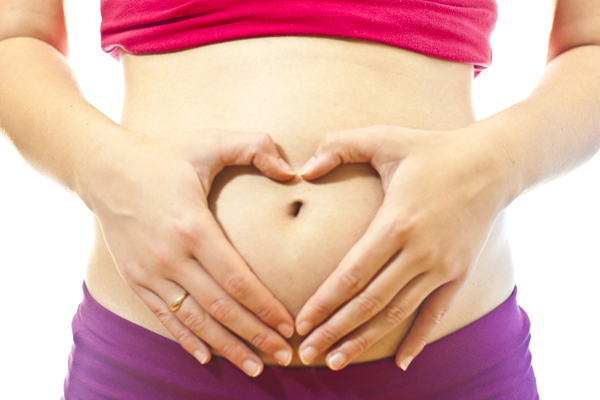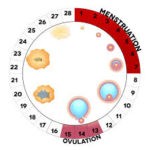Do you think you are pregnant?
The only ways to determine pregnancy is through pregnancy tests and ultrasound by then you must have been noticing some early pregnancy signs but here are other signs and symptoms of pregnancy to look out for: The earliest pregnancy signs are more than just missed periods. But these signs vary between individuals and in severity. Some of these signs include fatigue, nausea (with or without vomiting), mood swings, dizziness etc.

Early pregnancy signs and their duration’s
- Implantation bleeding – At the first few days after conception, the fertilized egg creates a fluid-filled group of cell that will develop into the baby’s organs and body parts. About 6 to 12 days after conception, the blastocyst will implant in the lining of the uterus causing implantation bleeding which may be mistaken for a light period. Cramp may be mild, moderate, or severe.Implantation bleeding is likely to last less than three days and doesn’t require treatment.
- Tender, swollen and overly sensitive breast – Breasts may provide one of the first symptoms of pregnancy. Hormonal changes may make your breasts tender, tingly or sore. Or your breasts may feel fuller and heavier. Breast changes can occur between the fourth and sixth week and is likely to disappear after your body adjusts to the hormonal changes. Around the tenth to eleventh week, changes in the nipples may also occur as these pregnancy hormones continue to cause your breasts to grow. The area around the nipple, also known as areola, may change to a darker color and grow larger.
Maternity bra could be worn to ease the tenderness. Breast pads could all be used by fitting them into the bra; this reduces nipple friction and hence nipple pain.
- Nausea and morning sickness – This is a feeling of illness or discomfort in the digestive system, usually characterized by a strong urge to vomit. This usually begins after implantation bleeding, at fourth to sixth week after conception. Morning sickness, irrespective of the name, happens at any time of the day. Morning sickness can be reduced or avoided by eating a few saltine crackers before you get up in the morning. Drink plenty of water to maintain body hydration. Contact your gynecologist if you cannot keep fluids or food down.
- Frequent urination and kinetosis – During pregnancy, the volume of blood pumped in the body increases, thus, the kidney processes more fluid than usual, leading to more fluid in your bladder. Hormones also play a large role in bladder health. Hence, frequent urination and even accidental leakage when laughing, sneezing, etc. Kinetosis, also known as motion sickness, is a feeling of nausea or dizziness caused by a disagreement between visually perceived movement and the vestibular system’s sense of movement. Both frequent urination and motion sickness may occur around fourth to sixth week after conception.
Other Symptoms of Pregnancy
There are other symptoms of pregnancy and these include;
- mood swings
- Increased basal body temperature
- Bloating
- Fatigue
- Heartburn
- Weight gain
- Vaginal discharge
- Mild headaches
- Constipation
- Food cravings and food aversion
- Dizziness
Note these symptoms are not unique to pregnancy. Some can indicate that you’re getting sick or that your period is about to start. Likewise, you can be pregnant without experiencing any of these symptoms. But if you miss a period or notice any of the symptoms on this list, it is advisable to take a home pregnancy test – especially if you’re not keeping track of your menstrual cycle or if it varies widely from one month to the next. If your home pregnancy test is positive, make an appointment with your doctor. The sooner your pregnancy is confirmed, the sooner prenatal care is required. A day or two after missed period is the best time to carry out pregnancy test to achieve maximum results. If the pregnancy test result is negative, subsequent trials can be done a few days later for accuracy.




